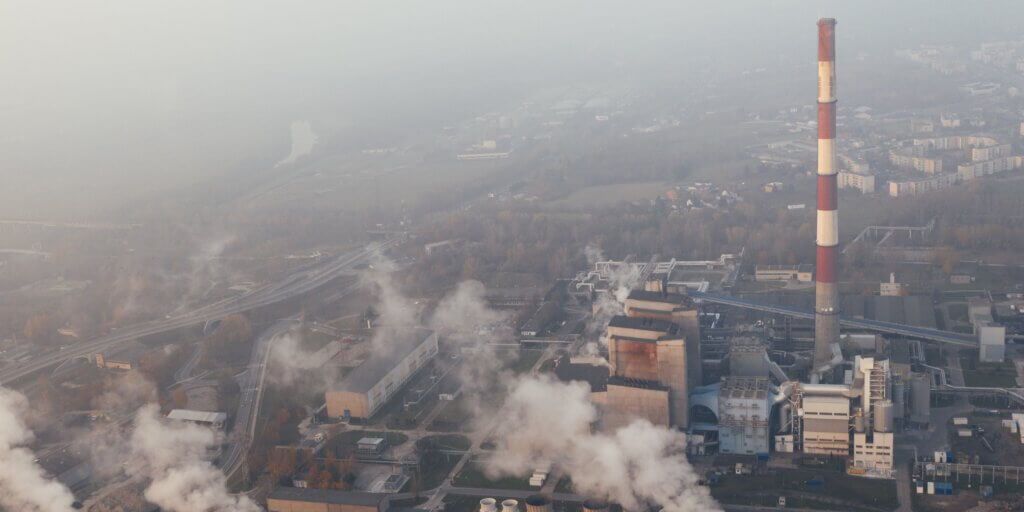
After intense debate and the rejection of its first draft agreement, the UAE presidency of COP28 made a breakthrough by reaching consensus around the need to “transition away from fossil fuels”. Although the agreement fell short of expectations for an outright “phase-out”, it stands as a significant step forward. No previous COP text had explicitly addressed the need to move away from oil and gas – the primary energy sources that have powered the global economy and societies for decades. This newfound agreement sets a precedent for future COPs and signals a shift in global attitudes towards fossil fuels.
“The Cop28 agreement, while signalling the need to bring about the end of the fossil fuel era, falls short by failing to commit to a full fossil fuel phase out. If 1.5C is our ‘north star’, and science our compass, we must swiftly phase out all fossil fuels to chart a course towards a liveable future. World leaders must continue to urgently pull together and find ways forward to tackle this existential threat. Every day of delay condemns millions to an uninhabitable world.”
Mary Robinson, Chair of the Elders, former president of Ireland, and former ISC Patron.
Strong of nearly 70 years of engagement in climate science, the International Science Council approached COP with the aim to advance the interface between science and policy in support for evidence-based climate action, providing scientific expertise to policymakers to ensure science is at the forefront of the conference negotiations.
“There was a palpable sense of urgency and determination throughout COP28 regarding the imperative for swift implementation of emission reduction to curb global warming. While the final statement may not have fully embraced this urgency, I see it as a delay rather than a dismissal of what fundamentally needs to occur – and will inevitable occur.”
Prof. Detlef Stammer, Co-Chair of the Joint Scientific Committee of the World Climate Research Programme and ISC Fellow.
The ISC started by organizing a virtual “Knowledge Sharing Dialogue” on December 4, bringing together experts from its Affiliated Bodies – the World Climate Research Programme (WCRP), Future Earth, the Integrated Research on Disaster Risk (IRDR), the Scientific Committee on Antarctic Research (SCAR), the Global Climate Observing System (GCOS), and the Global Ocean Observing System (GOOS) – to share the latest developments in climate science, present their flagship activities, and discuss the opportunities for further collaborative engagement in climate action. The event demonstrated the incredible scientific work undertaken by these bodies and highlighted the need for strengthened collaboration and increased engagement of the ISC membership in their activities.
To provide policymakers with the latest climate science, two ISC Affiliated Bodies, Future Earth and the WCRP, in collaboration with the Earth League, have compiled 10 critical insights from recent climate research. The insights for 2023-2024 are clear: we are inevitably on track to surpass the Paris Agreement’s 1.5°C global warming target. Minimizing this overshot is crucial for reducing global risks, and achieving it requires a rapid and managed phaseout of fossil fuels.
Ten New Insights in Climate Science
Every year, Future Earth, the Earth League, and the World Climate Research Programme (WCRP) convene leading global scholars to review the most critical findings in climate research. Through a rigorous scientific process, these findings are summarized into 10 insights, offering valuable guidance for policymakers and society.
Future Earth’s Global Carbon Project launched the 2023 Global Carbon Budget demonstrating that global carbon emissions from fossil fuels have risen again in 2023, up 1.1% from 2022 – reaching record levels 36.8 billion tones in 2023.
The Global Climate Observing System (GCOS) presented the latest updates on the state of the global climate system and developments in systematic observation during the COP Earth Information Day. The Scientific Committee on Antarctic Research (SCAR) presented the long-term consequences of sea-level rise and mountain freshwater losses above 1.5°C.
In an effort to incorporate perspectives from the social sciences into the global climate debate, the ISC and the Royal Society organized a side event titled “Better Understanding Economic Impacts of Climate Change and Accelerating Science-Based Climate Action” on December 6th. The event explored the utilization of economic analysis in informing decision-making on climate policy and accelerating climate action based on scientific evidence.
Building upon these issues, the ISC released an article spotlighting the crucial role of economists and social scientists in providing insights and guidance to policymakers and stakeholders, particularly in overcoming social and economic barriers that hinder effective climate change mitigation and adaptation efforts. By bridging the gap between scientific evidence and social and economic realities, economists and social scientists can provide valuable insights and guidance to policymakers, helping to accelerate progress towards a sustainable future.

“What’s holding us back?”: how economists and social scientists might hold the key to climate action
The science is clear: sustainable living within the planet’s boundaries cannot be achieved without a rapid phase-out of fossil fuels. As COP28 negotiations appear to be concluding with no clear consensus for urgent and effective climate action, the International Science Council (ISC) asks: “What is holding us back?” The answer, it seems, lies within the realm of social sciences.
The COP was surrounded by controversy following comments from COP28 President Sultan Ahmed Al Jaber, who stated that there was “no science” to support calls for a phase-out of fossil fuels. Following the comments, Future Earth and WCRP, issued a joint statement rallying scientists around the world and emphasizing the overwhelming consensus among scientists that rapid and far-reaching transitions away from fossil fuels are essential to limit global warming to 1.5 degrees.
“The scientific community stands united in its assessment that a rapid and far-reaching transition away from fossil fuels is urgently needed to limit global warming to 1.5°C, the critical threshold to avoid the most severe impacts of climate change. The overwhelming consensus is that this transition is feasible and necessary, and that the benefits of doing so far outweigh the costs.”
Despite challenges, COP28 has undeniably left a mark on the global climate discourse, paving the way for continued collaborative efforts towards a sustainable future. It is a significant step from global policy to align with the recommended science-based climate agenda. Throughout the years, the scientific community has maintained a united front, emphasizing the feasibility and necessity of the transition to curb global warming and avert the most severe impacts of climate change.
“There is little doubt this COP has mobilized more coalitions than ever before for an array of climate action critical areas. The highlight remains strong movement on adaptation, Loss and Damage and Food Systems. It has also demonstrated the need to tackle head-on some difficult discussions, as in the case of fossil fuels. For the first time there is recognition will have to replace their use and we should do so in different pathways, because countries have different responsibilities and capacities. Dubai will be remembered as the moment activism met pragmatism.”
Prof. Carlos Lopes, Professor at the Mandela School of Public Governance, University of Cape Town and ISC Fellow.
Looking ahead to other international climate fora and preparations for COP29 in Azerbaijan in 2024, the ISC remains committed to supporting climate science, bridging the gap between science and policy, advocating for evidence-based climate action, and providing scientific expertise to policymakers.
The ISC started a blog series emphasizing the need for inclusivity across all knowledge types and the people who create that knowledge—irrespective of factors such as gender, race, economic background, geographic location, or language. For comprehensive solutions that are applicable to policymakers and accessible to end users across the globe, intentional diversity is paramount in ensuring that everyone has a seat at the table.
This series is part of an ongoing effort to feature Early and Mid-Career Researchers from diverse corners of the world engaged in the study of various disciplines spanning the social and hard sciences. It began during the World Climate Research Program Open Science Conference and extends through COP 28, aiming to amplify the perspectives of young voices on climate action.
Image by UNclimatechange on Flickr